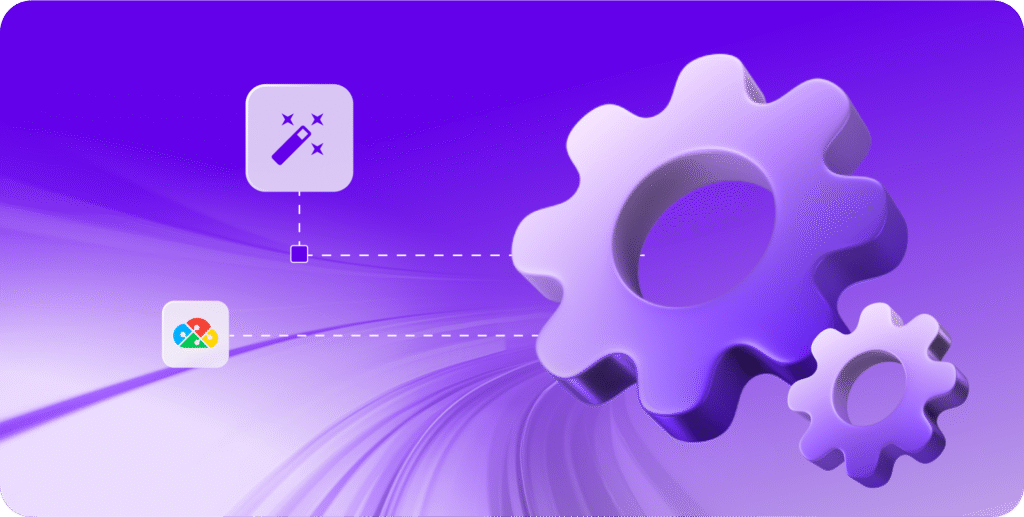The world of custom software development is a challenging one, characterized by unique requirements, intricate integrations, and the constant pressure to deliver high-quality, tailor-made solutions rapidly. DevOps has been a game-changer in this landscape, fostering collaboration and automation to accelerate the software delivery pipeline. Now, Artificial Intelligence (AI) is taking DevOps to the next level, infusing intelligence and predictive capabilities that are truly revolutionizing how we build, deploy, and operate custom software.
This blog explores how AI is enhancing continuous integration (CI), continuous delivery (CD), and operations for custom solutions, leading to unparalleled efficiency, reliability, and innovation.
The Custom Software Conundrum: Why AI is a Perfect Fit
Unlike off-the-shelf products, custom software is designed to address highly specific business needs. This often means complex architectures, unique dependencies, and a constant need for adaptation as business requirements evolve. Traditional DevOps, while powerful, can still face hurdles:
- Manual Bottlenecks: Even with automation, certain tasks like comprehensive test case generation for bespoke features or in-depth log analysis across complex systems can be manual and time-consuming.
- Reactive Issue Resolution: Identifying root causes of issues in custom, distributed systems can be like finding a needle in a haystack, often leading to reactive firefighting.
- Optimizing for Uniqueness: Generic optimization strategies might not be sufficient for highly specialized custom applications.
This is where AI steps in, offering intelligent solutions that learn, adapt, and predict, specifically tailored to the nuances of custom software.
AI Enhancing Continuous Integration (CI): Building Smarter, Faster
CI is all about integrating code changes frequently and verifying them automatically. AI brings a new dimension of intelligence to this crucial phase:
- Intelligent Code Analysis and Review: AI-powered tools can analyze vast codebases of custom solutions to identify potential bugs, security vulnerabilities, and code smells with remarkable accuracy. They can even suggest optimized code snippets and proactively detect issues that might lead to build failures, saving developers countless hours. For custom applications with unique coding patterns, AI can learn and adapt to these specific styles.
- Smart Test Case Generation and Prioritization: Manually creating comprehensive test cases for complex custom features is tedious. AI can automatically generate test cases based on code changes, requirements, and historical data, ensuring broader coverage. Furthermore, AI can prioritize tests based on the likelihood of failure or the impact of code changes, drastically reducing testing time without compromising quality for bespoke features.
- Predictive Build Failure Detection: By analyzing historical build data, AI algorithms can predict potential build failures even before they occur. This allows teams to proactively address issues, preventing bottlenecks and ensuring a smoother integration process for custom components.
AI Enhancing Continuous Delivery (CD): Seamlessly Deploying Bespoke Solutions
CD extends CI by automating the release of validated code to production. AI adds a layer of intelligence that makes deployments more reliable and efficient, especially for custom applications:
- Automated Deployment Optimization: AI can analyze deployment metrics, historical success rates, and infrastructure performance to determine the optimal time and method for deploying custom solutions. It can suggest blue/green or canary deployment strategies based on the risk profile of a new release, minimizing downtime and impact on end-users.
- Predictive Rollback and Anomaly Detection: In the event of a deployment issue, AI can rapidly identify anomalies in system behavior and automatically trigger rollbacks to the last stable version. For custom software, where a single change can have far-reaching effects, this proactive intervention is invaluable in preventing widespread outages.
- Intelligent Resource Allocation and Scaling: Custom applications often have fluctuating resource demands. AI can analyze usage patterns and predict future needs, enabling dynamic allocation of infrastructure resources. This ensures optimal performance while minimizing cloud costs, especially for bespoke solutions that might have unique scaling requirements.
AI in Operations: Proactive Management of Custom Systems
Beyond CI/CD, AI is transforming the operational aspects of custom software, moving from reactive troubleshooting to proactive management:
- AIOps for Predictive Monitoring and Incident Management: AIOps (AI for IT Operations) platforms leverage AI and Machine Learning to process massive amounts of operational data (logs, metrics, traces) from custom applications. They can detect subtle anomalies, correlate events across distributed systems, and predict potential outages before they impact users. This enables operations teams to shift from firefighting to predictive maintenance, reducing Mean Time To Resolution (MTTR) significantly.
- Root Cause Analysis and Automated Remediation: When an issue arises in a complex custom environment, AI can quickly pinpoint the root cause by analyzing vast datasets and identifying patterns. In some cases, AI can even trigger automated remediation actions, such as restarting a service or adjusting configurations, minimizing human intervention and downtime.
- Security and Compliance Automation: AI can continuously scan custom codebases and infrastructure for vulnerabilities, identify malicious activities, and automate compliance checks. This is particularly critical for custom solutions that often handle sensitive data or operate in highly regulated industries. AI-driven systems can adapt to evolving threat landscapes, providing continuous protection.
The Future is Intelligent: Embracing AI in Your Custom Software Lifecycle
The integration of AI into DevOps isn’t just a trend; it’s a fundamental shift in how we approach custom software development and operations. By automating complex tasks, providing predictive insights, and enabling intelligent decision-making, AI empowers teams to:
- Accelerate Time-to-Market: Deliver high-quality custom solutions faster than ever before.
- Enhance Reliability and Stability: Reduce errors, minimize downtime, and proactively address potential issues.
- Improve Efficiency and Productivity: Free up valuable developer and operations time to focus on innovation and higher-value tasks.
- Optimize Costs: Make intelligent decisions about resource allocation and prevent costly outages.
For organizations building and maintaining custom software, embracing AI in their DevOps practices is no longer a luxury but a necessity to stay competitive and deliver exceptional value to their users. The journey towards truly streamlined and intelligent custom software lifecycles has just begun, and AI is leading the way.


